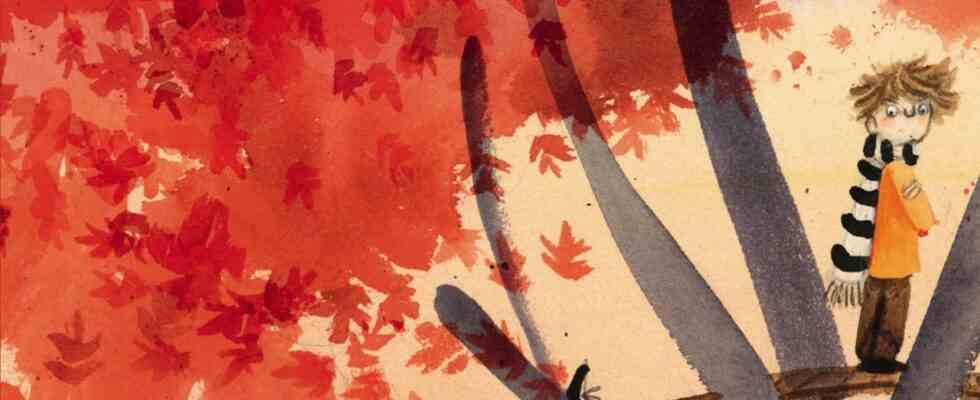The new calendar begins on a Friday. “We’re getting a guest,” says Mams to Hanno and Tim. “That could be uncomfortable,” Hanno thinks. And he’s even more shocked when he finds out who it is. Pien, a girl in his class. “Your mother is very tired, Hanno, I would like to give Pien your room,” explains Mams. Hanno’s thoughts are racing. Why here, why Pien, why so long, why my room, what will Lasse and Stan say, what will the footballers think?
The strengths of the novel “Hanno and the Emergency” by Dutch author Annejan Mieras are already evident on the first five pages: the immediacy and credibility of the story. We sit at the table when Hanno and Tim’s mother announces the new guest, we feel for Hanno, who throws his thoughts at us unfiltered. We accompany the ten-year-old through the next three weeks, during which he initially resists Pien, even belittles her in front of his classmates because he believes the girl is preferred by her parents – and how he ends up befriending her after all .
Pien is afraid of dirt. And she claims to be a princess
A key figure in this process is the bicycle mechanic Kees, whom Hanno trusts and admires: “Kees is very lucky. A big workshop just for him alone, always the radio on, eating with dirty hands, a cupboard full of gears, a high-pressure bicycle pump and a full cookie jar.” Some time ago, Kees gave Hanno the idea of making iron animals out of discarded bicycle parts, which has now become Hanno’s favorite pastime. When Hanno tells the bike mechanic about his worries, Kees advises him to take a few days to see what is happening. Hanno follows the advice and speaks his observations into a dictaphone: that Pien is afraid of dirt. That she might stink. That she doesn’t have to eat the plate empty. That she claims to be a princess.
Is that true? Stan and Lasse tell Hanno’s class to search Pien’s room (which is actually Hanno’s) for evidence of her being a princess. Hanno feels that this is not right, but does it anyway. Although he doesn’t find a crown, he does find another treasure: a red exercise book with a few neatly written lines and many crossed-out words. poems?
Annejan Mieras: Hanno and the emergency. With illustrations by Linde Faas. Translated from the Dutch by Andrea Kluitmann. Gerstenberg Verlag, 2022. 192 pages, 14 euros. From nine years.
(Photo: Gerstenberg Verlag)
Pien tells Hanno what it is all about and what these verses have to do with Pien’s longing for her father, who has disappeared in Poland. Here they also talk about Pien’s mother. Hanno now understands that she is by no means “lazy” because she is resting in a “hotel”, but that the loss of her husband has made her ill.
In the end it is Kees who resolves the misunderstanding about the identity of Pien’s father and thus enables her to emancipate herself from him. This also changes her relationship with Hanno. And Hanno himself develops an understanding of the girl’s situation.
On the last pages of the book we read the biography of the Polish poet Wisława Szymborska, who died in Kraków in 2012, as well as that of the girl Pien van Putten. It is said that her poems, which are behind each chapter in the narrative and by Wislawa Szymborska were inspired, recently appeared in the volume of poetry “Now”. Anyone researching the two poets will quickly find Wisława Szymborska. She is one of the most important poets in Poland and received the Nobel Prize for Literature in 1996. And Pien van Putten? Anyone looking for them will not find them. Pien is fictional.
The play with reality and fiction, which Annejan Mieras also uses in her story in relation to Pien’s father, finds its climax in these two biographies, which stand side by side on an equal footing. Pien’s poems, as they appeared in the volume of poems “Now” or as they could have appeared, are then printed in their entirety.
This little book, that Linde Faas decorated with numerous iron animals in a few brush strokes and translated by Andrea Kluitmann from Dutch into German is poetic, authentic and clever, an unconditional recommendation for everyone between nine and 99.

